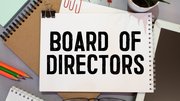News
Who's who: Brad Zerman
After a dozen years in the transaction processing business, Brad Zerman discovered a market niche for an inexpensive through-the-wall ATM -- and set out to fill it. The result: Qualtex Corporation's WeatherMaster.
September 6, 2004
When he enrolled at the University of Wisconsin in 1984, Brad Zerman wanted to be a lawyer.
Fairly quickly, however, the president of ATM manufacturer Qualtex Corporation discovered that what he really wanted to be was an entrepreneur.
As the president of his fraternity, Zerman helped locate and negotiate a deal for a house for the group. He also helped administer the frat's budget. "Basically, it was a lot like running a business," he said.
 |
Brad Zerman |
After several summers spent working in Chicago, at jobs ranging from construction work to running errands for office workers, he became interested in joining the ranks of the professionals hustling up and down Michigan Avenue.
Fortune seeker
Though the Detroit native applied to 14 law schools and was accepted into some after receiving a degree in political science/psychology in 1988, he decided to seek his fortune in Chicago instead. One week after graduation, he moved to the city with no job.
Zerman is rarely fazed by such challenges, said Bob Singer, his longtime accountant and business advisor. "If Brad runs into a roadblock, he just goes back and tries another ramp."
When a commercial real estate firm didn't return his calls during his job hunt, Zerman walked over to its offices and was hired shortly afterward.
Singer isn't surprised. "From the first day I met (Brad), I said, 'There's an entrepreneur.' He's always out there meeting people, hustling and making connections," he said.
After six months, Zerman was laid off when two shopping center deals fell through. Shortly afterward, he joined Peach Tree Bancard, then a thriving credit card business which later suffered from unchecked growth and poor management.
After six months with Peach Tree, Zerman was assigned to an internal sales division that served as a kind of clean-up crew. "They gave us files with deals that had fallen through and customers who wanted to cancel their contracts," he explained.
While talking to some of those merchants, Zerman said he discovered "problems with Peach Tree and its management that were only going to get much, much worse" and decided to leave the business.
At a credit card trade show, he met a consultant who agreed to help him start his own business. Zerman convinced three investors -- one of whom was the father of a former girlfriend -- to put up $75,000 and founded Midwest Bancard in 1991.
Down but not out
Brad Zerman |
When the money ran out, Zerman moved administrative operations into his Chicago apartment and hired his father, a former shoe store owner, to head up a sales effort in Detroit.
In late 1992, Zerman realized he needed more money and convinced one of Midwest Bancard's original investors to give him $15,000 to open an office and place recruitment ads. The company experienced some success -- but sales began to flatten with a card base of some 1,200 merchants.
"Better capitalized companies were running big telemarketing operations and pounding new-business lists from around the country. We had to take on riskier accounts, merchants who weren't established," Zerman said. "We were putting out about the same amount of deals as we were losing every month."
In 1997, Zerman decided to boost business by adding ATMs. Midwest Bancard placed five machines the first year. "We did placements, because I didn't think it made sense to develop a sales force for one-off deals. The margins were there, but they were already starting to go down," he said.
The big break
Business grew dramatically after a meeting with his wife's uncle, then president of the Community Currency Exchange Association. An ordinance that had prevented check cashers from putting ATMs in their stores had been lifted, and many of them wanted the machines.
Zerman discovered they didn't want traditional freestanding ATMs. "These were places that built $50,000 bulletproof cages to protect their employees. They didn't want to send them out into the store to load cash into an ATM," he explained.
Zerman found a machine called the Micro 2001, manufactured by BVC Technologies, a now-defunct Florida company. He enlisted a Chicago company to help him modify the ATM, a lightweight, front-loading machine designed to be mounted on a pedestal.
The machine was converted for rear-loading access, reinforced with quarter-inch steel and given a frame so it could be mounted through a wall. Midwest Bancard also added a rear screen and keypad, so security-conscious employees didn't have to venture into
stores to pull electronic journals. Midwest Bancard sold 150 of the ATMs in a year.
Zerman said BVC agreed to provide rear-loading versions of the Micro 2001 exclusively to his company - but then sold some of the machines to a Chicago competitor. During a phone discussion, a BVC executive told Zerman to "go ahead and sue" the company, as it intended to market the ATMs to other distributors.
The call took place on Oct. 31, 2000, the same day Zerman's wife delivered his firstborn daughter, six weeks before her due date.
Coming back from a setback
The couple agreed that Zerman should contact GTI, a company that provided parts and software to BVC. They also decided to sue BVC and later obtained a $150,000 judgment against the company. Wife Beth Ann, an attorney, often serves as an informal business advisor to Midwest Bancard, Zerman said.
After meeting with GTI, Midwest Bancard decided to begin manufacturing its own ATM. Introduced in 2001, it was called the MBC 1031, with inspiration for the model number coming from daughter Skylar's birthday. The company knew it had a winner when it sold 80 in the first month, Zerman said.
In 2003, the company spun off its ATM manufacturing division, calling it Qualtex Corporation, and introduced a weatherized version of the 1031 that could be used for exterior deployments. Since then, it has also introduced a countertop version.
Following the hiring of a national sales director, Jacob Eisen, Qualtex has signed 100 dealers in North America to distribute its products.
Zerman said Qualtex builds business by identifying market niches it can fill. It has established alliances with Heritage Industries and DASH ATM Enclosures to make it easier for deployers who want to use its ATMs in drive-through configurations. In the coming months, it will introduce a new model with a 2,000-note dispenser and optional Level 1 vault, to appeal to financial institutions interested in lower-cost alternatives to traditional through-the-wall ATMs.
Indeed, the rapid pace of Qualtex's growth has left Zerman with little time for activities outside work. However, he's home by 6 every night for quality time with Beth Ann and daughters Skylar, 4, and Lela, 17 months.
"Before we had kids, my wife and I both worked some pretty extreme hours, but being parents has really changed that. We realized we needed to make more time for them," Zerman said. "We spend almost all of our free time with them. It's almost like an addiction."
"We're an ISO that became a manufacturer to meet a market need. If we can keep finding niches, I think we can be pretty successful," Zerman said.
"Luck is a factor with almost every business, but it's also true that you can make your own luck. That's what Brad has done," said Singer, his accountant. "He's got the drive, the perseverance and the ambition to make things happen."
 ChatGPT
ChatGPT Grok
Grok Perplexity
Perplexity Claude
Claude












